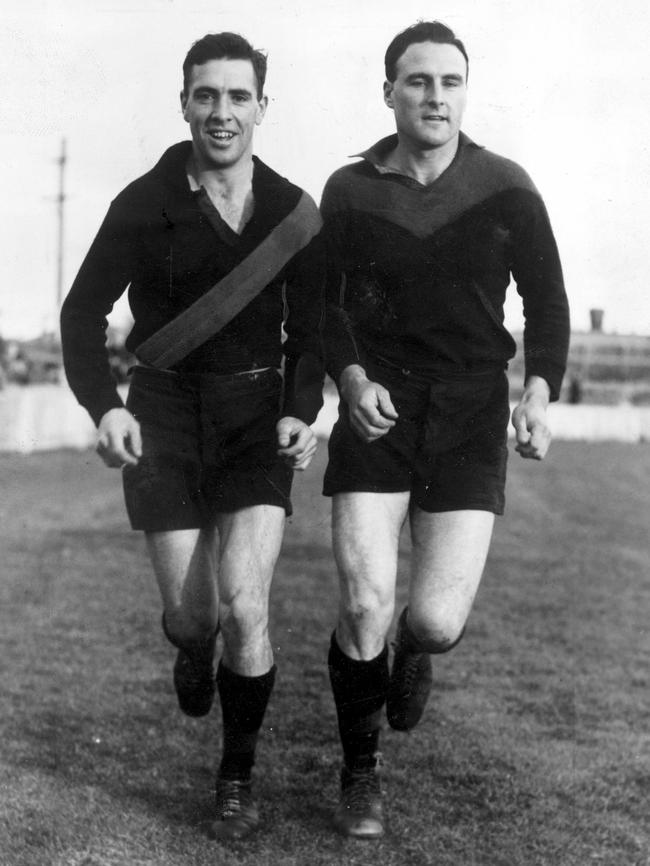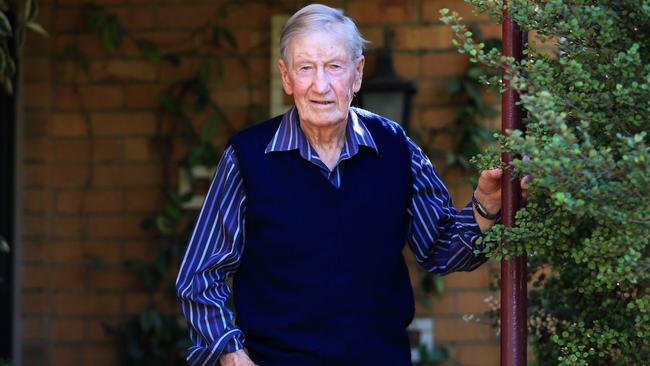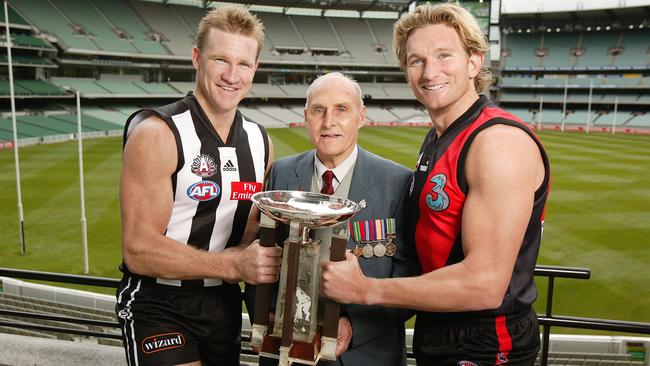Kevin Sheedy: Why footy offers a universal embrace
Anzac Day is special and we must not forget that, even in these challenging times. The situation right now is tough, but this will be nothing like living through a war, writes Kevin Sheedy.
Opinion
Don't miss out on the headlines from Opinion. Followed categories will be added to My News.
This week I picked up the phone and spoke to a truly remarkable Australian. His name is Colin Hamley, he is 98-years-old and lives in North Balwyn with his wife Valerie.
He is a mad Essendon fan, which is wonderful, but even more wonderful is his story.
Colin served in World War II, starting in the Middle East and then ending up in the Pacific.
He opened up and told me the story of how he became a prisoner of war for 3½ years, working on the infamous Thai-Burma Railway.
Colin’s brother, Donald, was also there and died of malaria and malnutrition, aged just 22.
His tale got me thinking of some other great stories of our servicemen and women.
At home I’ve got a growing collection of books on the subject, including Harder Than Football by Barbara Cullen.
It tells the story of the footballers who served in conflicts from the Boer War up to Vietnam.
Some stories have stayed with me.
There is Essendon champion Harold Lambert, who played 99 games, won three flags and had his football career interrupted by WWII.
After the recent death of Jack Jones, Harold — who is 97 — is the last surviving member of Essendon’s 1946 and 1949 premiership sides.

He also played in the 1950 premiership, and had the privilege to do so alongside the legendary John Coleman and Dick Reynolds.
I also think of the great Frank “Checker” Hughes, who played and coached in seven premierships interrupted by not one but two world wars.
They’re just a few of the many stories that have helped create the spirit of Australia.
I was in the army growing up and to this day I consider those two years among the best of my life.
It made me a better person.
I often thought if I ever got to a position where I could make a little bit of difference, Anzac Day was something I wanted to work on.
As it so happened, I was coaching Essendon when I first thought about staging an annual game to commemorate the day.
I rang then Collingwood football boss Graeme “Gubby” Allan, who 15 years later I would work with at the GWS Giants, and asked him, “what do you think?”
RSL president Bruce Ruxton was next, and he was very receptive to it.
That’s how it all began.
We all saw it as an opportunity to revitalise Anzac Day, which was a little bit on the wane at the time, particularly with young people.
I agreed wholeheartedly with then prime minister John Howard when he said we needed to get the history of it back in the schools.
At the first game in 1995 there were 95,000 people and about 15,000 locked out who couldn’t get in.
It was a wonderful result, but it didn’t surprise me too much.
I’d spent a lot of time travelling around Australia as a development officer with Richmond in the 1970s.

I did the same with Essendon later on, so you get a feel for people and what makes them tick. By sitting down and speaking to them you find out what they truly love.
In my experience it was often Test cricket, football and our defence forces.
Every town has a RSL monument remembering who came from that town that served, and they all look after it.
Even in the middle of Australia, in Alice Springs, there is a war memorial, which I took the Bombers players to once.

Anzac Day is special, and we must not forget that even in these challenging times.
The situation right now is tough, but this will be nothing like living through a war.
We still have up to 4000 to 5000 people join the army every year, and by the same token up to 5000 retire from it as well.
We must keep looking after them.
I’m an ambassador for Bravery Trust, which supports veterans and their families to enjoy fulfilling lives during and after their service.
They help 800 veterans every year and 3000 of their families.
If you go online to braverytrust.org.au you’ll find plenty of ways to help Australian veterans from today and yesteryear.
We shouldn’t forget them, nor should we forget the people of East Gippsland and other parts that have been burnt out and left with nothing from the recent bushfires.
We need to and we will put our arm around all of them.
That’s the spirit of Australia.
Kevin Sheedy is a four-time premiership coach
